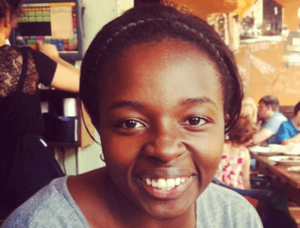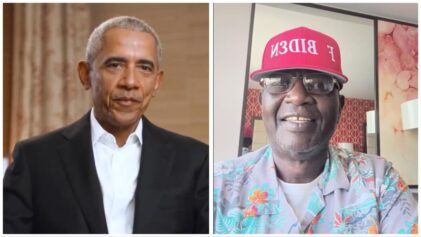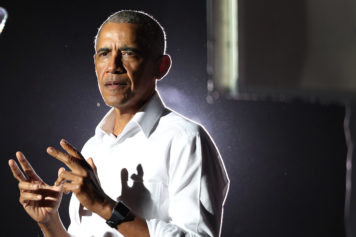
Imelme Umana (@imelme/Instagram)
Imelme Umana has been named president of Harvard Law Review, making her the first Black woman to hold the title at the Ivy League university and putting her in the company of former President Barack Obama, who held the position in 1990.
The second-year Ph.D. candidate is interested in the intersection between African-American studies and government and hopes to examine the ways stereotypes about Black women are recreated and reinforced in American politics, according to her Harvard web page.
Harvard’s Black Law Students Association announced Umana’s new title on Twitter Sunday, Jan. 29, making note of her historic feat.
Congrats to Imelme Umana, HLS '18, on her selection as President of the Harvard Law Review. 1st black woman to serve as President. #Herstory pic.twitter.com/liqu40K4Va
— Harvard BLSA (@HarvardBLSA) January 30, 2017
Since the announcement, congratulatory tweets have flooded in.
@HarvardBLSA @imeimeumana pic.twitter.com/NiCEmMKw7G
— Junie Bacabo (@kookamuffin) January 30, 2017
@HarvardBLSA @imeimeumana you go girl…I mean “Your honor”
Congratulations!— Ret. Lt. F. Cook Jr. (@smoknfyr7) January 30, 2017
@HarvardBLSA @Ernestsworld @imeimeumana @CousinSyl @karenhunter THIS IS EVERYTHING! Come on thru ! ????????‼???
— Renee Rousseau (@raye8405) January 30, 2017
@HarvardBLSA @imeimeumana wow this just made my heart sing. Congrats!
— V (@vicwhitemay) January 30, 2017
Several people drew comparisons to Obama’s post-law review career as president of the United States.
@HarvardBLSA President Umana…
Just trying it out for size. 🙂
— Murse WordsWorse (@MightyJFury) January 30, 2017
@HarvardBLSA @HouseOfMichele @imeimeumana Looking forward to our first Black Woman President in 20 years!
— S Puryear (@smp0312) January 30, 2017
.@HarvardBLSA @KatrinaNation @imeimeumana I look forward to seeing Imelme Umana take oath of office as POTUS in 2037.
— James McPherson (@JimBMcPherson) January 30, 2017
Umana’s designation followed the law review inducting its most diverse class of editors in history. She was part of that group, becoming a new editor for the student-run organization in fall 2016. Umana discussed the legal journal’s diversity issues in The Harvard Crimson that year.
“The descriptive stats of the review haven’t historically been inclusive and so that may signal to some people that it’s not an inclusive place,” she told the newspaper, “because it didn’t have an inclusive membership.
“It’s hard to say definitively that a diverse membership automatically leads to students of color feeling included,” she said. “I do hope that with the marked increase in the diversity of the membership, that it signals to future students of all sorts of marginalized identities that they belong at the law review.”


